
Comercial Instal·lacions fotovoltaiques
OFERTA DE FEINA
Comercial Instal·lacions fotovoltaiques
DESCRIPCIÓ DEL LLOC DE TREBALL
- Nom: Comercial d’instal·lacions fotovoltaiques
- Ubicació: Oficina de l’Associació SEBA – C/ Fernando Pessoa, 21 de Barcelona.
- Departament: Tècnic-Comercial
- Treball d’oficina i treball de camp. Àmbit Barcelona i Catalunya.
- Jornada: 40h/setm.
- Durada: 6 mesos. Voluntat d’ampliar i consolidar lloc de treball
- Horari: Flexible
Tasques:
- Gestionar les oportunitats de venta.
- Coordinar-se amb àrea tècnica per a la elaboració de les propostes tècniques valorades
- Presentar, fer el seguiment i tancar les ofertes comercials.
- Recerca pro-activa d’oportunitats. Proposar estratègies comercials.
- Seguiment de les subvencions existents, tramitació i justificació de les subvencions dels
socis/clients.
PERFIL DEL LLOC DE TREBALL
Coneixements / Experiència
- Experiència com a comercial
- Formació en tècniques de venta.
- Coneixements / Formació relacionada amb l’energia.
- Nivell alt d’Ofimàtica (entorn Office), especialment Fulls de càlcul i Bases de dades.
- Tràmits en línia amb les Administracions
- Idiomes: Català i castellà nivell alt. Es valorarà el domini d’altres idiomes.
Aptituts / Actituts
- Metòdica / molt organitzada
- Pro-activa.
- Autònoma
- Responsable
Carnet de conduïr de cotxe (classe B)
L’ASSOCIACIÓ
Cultura corporativa
- Associació sense ànim de lucre constituïda l’any 1989 per a la promoció de les energies renovables i l’estalvi i eficiència energètica (EEE). Referent en instal·lacions Fotovoltaiques de qualitat, i amb un disseny ajustat i òptim per a cada usuari, a qui ofereix un servei post- venta d’acompanyament en la gestió i manteniment de les instal·lacions. Molt focalitzat en el petit consumidor, si bé obert a d’altres nínxols.
- Cultura orientada a la feina, amb escassos formalismes, centrada en la avaluació del rendiment i l’obtenció de resultats, promovent i potenciant, alhora, el desenvolupament del treballador com a persona i com a professional.
- Treball en equip. Consens. Autonomia de treball.
- Flexibilitat, per ambdues bandes.
- Empatia i compromís amb i entre les persones i entitats col·laboradores, generant noves idees i iniciatives.
Jerarquia
- Dependència directe de Gerència.
- Treball amb col·laboració amb Departament tècnic.
- Participativa. Es valora la pro-activitat del treballador. S’ofereix la possibilitat de fer carrera professional dins l’entitat.
REMUNERACIÓ
Falca salarial 16.000 € bruts anuals + variables (fins a 2.000€/mes).
CONTACTE
Enviar CVs a marc.romera@seba.es amb l’Assumpte: “Comercial_(Nom+ Cognom)“
The post Comercial Instal·lacions fotovoltaiques first appeared on SEBA - Associació de Serveis Energètics Bàsics Autònoms.

Solidarizar 2024
El domingo 17 de marzo de 12:00 a 20:00 h. se celebrará SOLIDARIZAR 2024 en la Sala Multiusos del Auditorio de Zaragoza, una feria de solidaridad + mercadillo de segunda mano organizado por Zaragoza Joven en colaboración con la Federación Aragonesa de Solidaridad. La entrada y las actividades son gratuitas.
Este año se celebra con el lema «Juventud por la salud y el bienestar» para reconocer el compromiso de la juventud zaragozana por una ciudad más sana y saludable, en la que se trabaje de forma integral para que toda la gente pueda vivir en una situación de bienestar físico y emocional.
El evento SOLIDARIZAR, que se celebra anualmente desde el año 2013, que cuenta con una amplia trayectoria que le ha consolidado como un punto de encuentro de grupos de solidaridad y asociaciones, además de ser un mercadillo de 2ª mano de referencia en la ciudad de Zaragoza.
La Federación Aragonesa de Solidaridad y varias ONGD miembro de la FAS, entre las que se cuenta Huauquipura, participaremos un año más en este evento mostrando nuestra labor ante la ciudadanía zaragozana con puestos informativos y de sensibilización, puestos de venta de productos solidarios y de comercio justo, y realizando talleres/actividades sobre la temática del evento: la salud y el bienestar en su dimensión más integral.
La jornada se estructura en torno a cuatro pilares:
- Feria de Asociaciones: se cuenta con la colaboración con Federación Aragonesa de Solidaridad y tendrá la presencia de varias asociaciones como Huauquipura.
- Mercadillo de segunda mano: habrá 80 puestos de particulares. Se fomenta el reciclaje y la reutilización. Es necesaria inscripción previa y abonar una cuota solidaria de 15 euros que ira destinada íntegramente a la asociación Medicusmundi. La inscripción puede realizarse hasta el 1 de marzo a través del correo mercadillosolidarizar@gmail.com
- Espacio joven: grupos de solidaridad, voluntarios y colaboradores dispondrán de un espacio para visualizar el trabajo y los hermanamientos impulsados por las Zonas Jóvenes de Zaragoza.
- Programación de actividades: a lo largo de la jornada se cuenta con diferentes espacios con talleres y actividades para peques y toda la familia, escape room sobre ODS y cambio climático, DJs, creaciones artísticas colectivas, etc. En la Sala Multiusos se exhibirán varias exposiciones que nos hablarán sobre Desarrollo Sostenible y Salud. Además se sorteará una cesta de comercio justo y habrá batukada.

MÁS INFORMACIÓN en https://mercadillosolidarizar.blogspot.com/
La entrada Solidarizar 2024 se publicó primero en Huauquipura - Entre hermanos.
Sigue en directo el regreso de Andreas a la Tierra
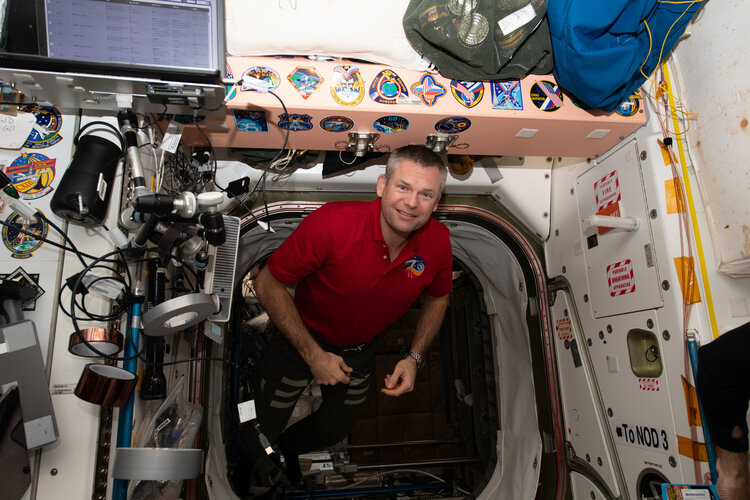
Tras más de seis meses en la Estación Espacial Internacional, el astronauta de la ESA Andreas Mogensen y el resto de la tripulación Crew-7 se desacoplarán y bajarán a la Tierra el 11 de marzo de 2024 a las 13:15 GMT/14:15 CET, amerizando en la costa de Florida el 12 de marzo, a las 09:35 GMT / 10:35 CET. Siga el desacoplamiento y el amerizaje ESA WebTV.
SÁBADO 9/3 ANULADA SALIDA DE OBSERVACIÓN A PUJALT
SÁBADO 9/3: ANULADA SALIDA DE OBSERVACIÓN A PUJALT
Os informamos que debido a las condiciones meteorológicas, la salida de observación a Pujalt ha sido CANCELADA.

The Ethics Education Fellowship reaches 2,900 Schoolchildren in Indonesia
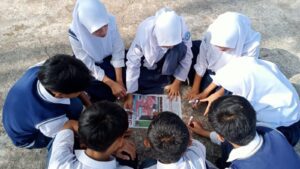
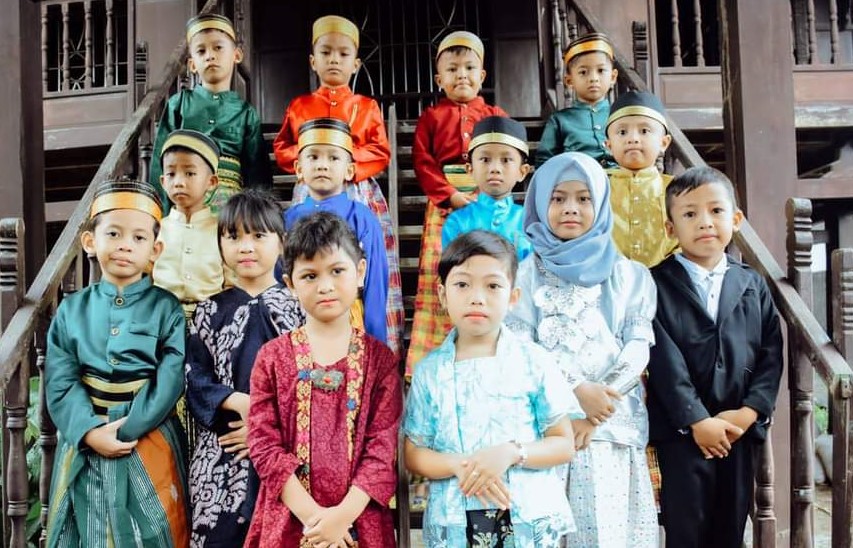
With 200 teachers from 15 schools involved, and 2,900 learners reached, the implementation phase of the Ethics Education Fellowship successfully concluded in Indonesia, showcasing positive results for both teachers and learners.
Connecting with the existing foundations of Indonesia’s Pancasila Learner Profiles (P5) model, the Ethics Education Fellowship brought valuable assets with its transformative pedagogy approach. Tackling many of the challenges left by the COVID-19 pandemic, the implementation of ethics education in the classrooms positively influenced learners’ behaviors, attitudes and motivation.
Teachers and Students Leading the Process
Following the National Teacher Training workshop which took place on 14-17 February 2023 with the participation of 93 educators, ethics education programs were implemented in 5 provinces in the country (West Java, East Java, Papua, West Kalimantan, and South Sulawesi). The implementation in schools involved children ranging from Kindergarten to High School levels including special education classrooms. The selection of the participating schools and classrooms was decided inclusively and collaboratively, giving prominence to the diversity of learners, their accessibility and socio-political backgrounds.
Among the activities conducted with children, the learners and the local communities highlighted their appreciation for the open dialogue sessions, focus group discussions, and interfaith and intercultural visits and celebrations.

The students established Social Labs in each school with the guidance of their teachers. They also organized monthly academic sessions to reflect on social issues with the entire school community. These interventions greatly improved learners’ critical thinking and problem-analysis skills related to issues both within the school and in the broader community, such as bullying, sexual education, digitalization in learning, gender issues, and more.
Another initiative with great results was the Online Interconnection Meetups with international students. Students reported a positive impact, as these instances helped them exchange experiences about their diverse value systems and ethnic, cultural, and religious identities.
As shared by the teachers who are implementing the programs, there have been clear improvements among students such as better relationships among peers, teachers and parents, an improved capacity to reflect and make informed decisions, the ability to clearly express themselves, openness to diverse perspectives and differing ideas, enhanced social solidarity, empathy and sense of responsibility and other similar qualities.

Similarly, the teachers involved in the process also identified their own capacities expanding parallel to the integration of ethics education to school curricula. For example, the ethical value system introduced in the program provided teachers with ideas and experiences to incorporate them into their teaching approaches. It has also boosted their confidence in implementing the Pancasila Learner Profile, as ethics education and the Pancasila Profile complement each other. Furthermore, they have been able to complement their teaching capacities through learner empowerment, introducing joyful and collaborative learning to daily practice and ethical reflection and dialogue in the classroom, embodying the role of role models to their students.
“In my school, there are rules that prohibit students from wearing accessories. After participating in Ethics Education activities, we learned that there are religious bracelets worn by Hindu students. After that, the school rules became more relaxed. As a teacher, I have come to understand that we cannot enforce a rule without trying to understand the specific reasons behind others’ behaviors”, expressed a teacher who was involved in the ethics education implementation activities, reflecting on their own learnings.
Community Impact Beyond the Classroom
The implementation of ethics education in schools also had a significant impact on the local communities in Indonesia. Other than the teachers, students and administrators of the educational institutions, the parents of the students, religious leaders and representatives from different religious groups, environmental practitioners, civil society groups and other various stakeholders contributed and actively participated in the program implementation. These stakeholders play essential roles in the successful implementation of ethics education programs, contributing to a more holistic and inclusive approach.
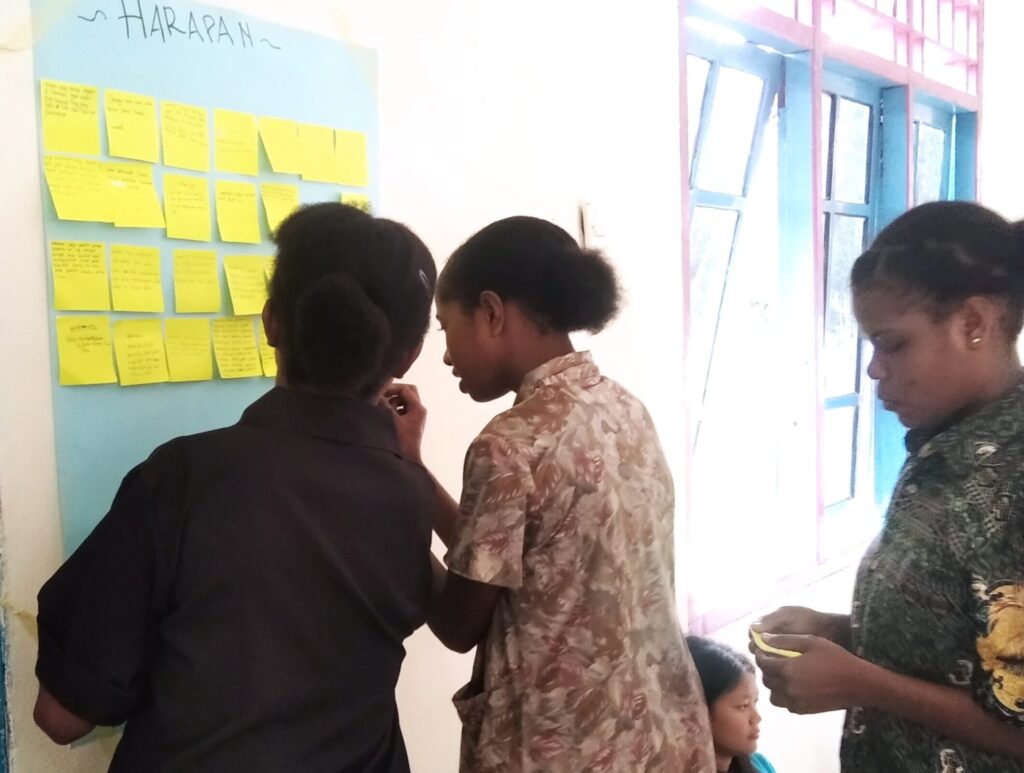
Due to this engagement, many value additions were created that facilitate inclusive and peaceful practices within the community. Notably, the relationships between students and their community members strengthened, with a grown interest in intercultural and interreligious collaboration. Also, the introduction to safe learning spaces for children has allowed the learners to openly discuss their issues and differing perspectives respectfully. The learners also have built a sense of belonging to their community and now can better understand their role in their society and the responsibilities they share.
According to a reflection shared by an elementary school-level participant, the confidence gained from participating in the ethics education programs has had a positive impact on making many friends. It also has helped them to become more independent and conscious of diversity within their learning community.
The learners have developed competencies to contribute towards a more just, inclusive and peaceful society by becoming champions to advocate anti-bullying, peaceful conflict resolution, and environmental protection and preservation as global citizens.
Ethics Education and its National Impact on School Education
Among the school-level activities conducted through the program, there were also multiple advocacy elements to the implementation of ethics education in Indonesia. One of the highlights of this process is strengthening the P5 program. This initiative has contributed to the enhancement of the P5 program and the development of prototypes for its implementation across all education levels and in various regions. These prototypes can serve as models for scaling up teacher training on a national scale, reaching a larger number of educators and students.
Curriculum Enhancement for Ethical Education can be identified as another intervention that has grounded the integration of ethics education in the national curriculum. By introducing ethics education as a preventive measure in cases of bullying, the program has contributed to creating a more comprehensive and holistic curriculum. This inclusion emphasizes the importance of ethics and values-based education in fostering a positive and respectful school environment, ultimately helping to prevent incidents of bullying.
Additionally, the program is supported and strengthened by the collaboration of multiple stakeholders such as the Ministry of Education of Indonesia, the UNESCO National Commission, local governments, educational institutions, interfaith institutions, cultural centers and many others.
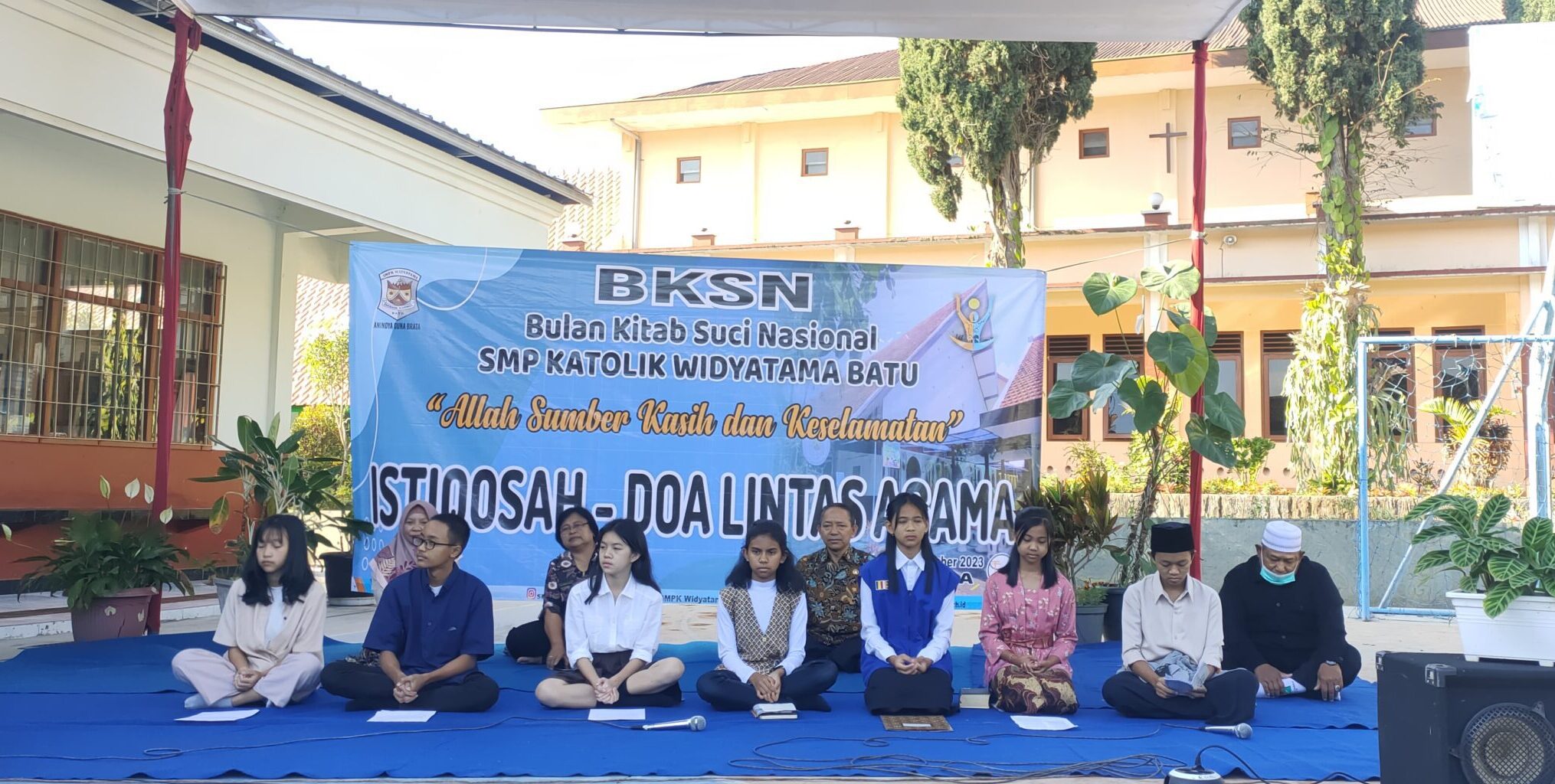
Ethics Education Fellowship
The Ethics Education Fellowship is a flagship initiative to promote inclusive and peaceful societies. Through the fellowship, teachers are trained to integrate ethics education as an entry point to transform education.
The Fellowship program was launched in 2022 as a collaboration between Arigatou International, the Guerrand-Hermès Foundation for Peace, the KAICIID International Dialogue Centre, the Muslim Council of Elders, together with the UNESCO Regional Office for Eastern Africa and the UNESCO New Delhi Cluster Office.
This initiative is currently functional in six countries including Bangladesh, Indonesia, Kenya, Mauritius, Nepal and Seychelles, and is being supported by the Ministries of Education and UNESCO National Commissions of respective countries. Currently, the fellowship has reached over 323 educators and 7,334 children among the six participating countries and made a transformative change in their educational systems as well as local communities.
In Indonesia, this impact has reached 200 teachers and more than 2,900 learners with the support of many stakeholders who were part of the process. The group of Fellows and partners are hoping to expand the teacher training opportunities for ethics education, enhancing the ethics education curricula and learning materials as well as strengthening the support structures provided for teachers and learners engaged in the program.
We would like to thank the Ethics Education Fellows from Indonesia including Ms. Nita Isaeni, Ms.Euis Lesmini Djuanda, Mr.Albertus Bambang Buntoro, Ms.Alia Nilawati, Mr.Rudy Yanuarto and Mr. Abu Khaer who committed their time and effort to make this journey of success a possibility. Also, our gratitude goes to all the teachers who were involved in the implementation of the program and other key stakeholders who shared their valuable time and resources to support the process.
The post The Ethics Education Fellowship reaches 2,900 Schoolchildren in Indonesia appeared first on Ethics Education for Children.







